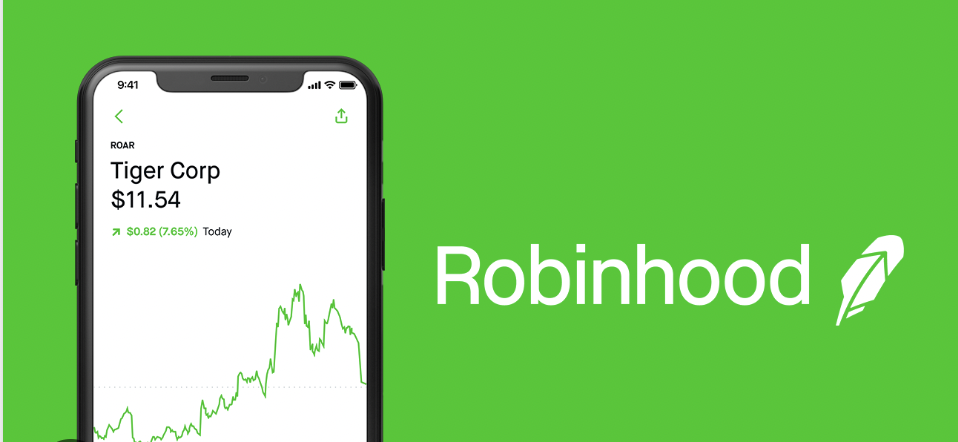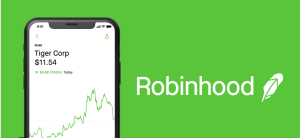Join Our Telegram channel to stay up to date on breaking news coverage
Crypto trading platform Robinhood has recorded a big dip in its revenues in the last quarter of 2022. The crypto firm recorded a trading revenue of $39 million in Q4/2022, a 24% drop from Q3’s $51 million, according to a recent report.
We just announced our financial results for the fourth quarter. Find information on our performance at https://t.co/3l82Sx3F7d
— Robinhood Comms (@RobinhoodComms) February 8, 2023
Following the September 2022 testing version of Robinhood’s Polygon-based Web3 wallet, the Robinhood crypto wallet was made accessible to over one million consumers who had been put on the waitlist. Data from FactSet shows that while analysts speculated that Robinhood would lose 15 cents for every share in Q4, the firm lost 19 cents for every share after they had adjusted for non-recurring costs on $380 million revenue.
Robinhood’s Wednesday after-hours trading saw the firm’s stock surge in value by almost 3% to $10.80. So far, the stock price is now up approximately 30% but remains 20% down year-to-date.
Robinhood To Buy Back Shares From Bankman-Fried
The company has also revealed its board’s move to approve the purchase of all or most of the 55 million shares bought by holding firm Emergent Fidelity Technologies for former FTX CEO Sam Bankman-Fried in May last year. It also canceled around $500 million of its share-based compensation.
JUST IN: Robinhood has agreed to repurchase Sam Bankman-Fried's $579M stake.
Robinhood is working with the DOJ on the plan, but can't guarantee when or if it will happen.
— Quiver Quantitative (@QuiverQuant) February 8, 2023
According to Robinhood, the company’s board has approved a strategy to repurchase all or most of the 55 million shares a holding company bought for former FTX CEO Sam Bankman-Fried in May 2022. Reportedly, the shares amount to over 7% stake.
To this end, the firm was liaising with the Department of Justice but said, “There is no guarantee when or if the plan will happen.” Notably, the 55 million shares are at the center of a tussle between Bankman-Fried and a group of international and domestic organizations, among them crypto lender BlockFi.
In a January filing by the U.S. Department of Justice (DOJ), it was revealed that Bankman-Fried held 55,273,469 HOOD shares. Notably, the DOJ seized his stake in Robinhood.
DOJ Officially Seizes Over $456,000,000 Worth of Robinhood Shares Tied to FTX Founder Sam Bankman-Friedhttps://t.co/jVQQXw5GbO#thegloryhodl #alphazero #flightsquare #gloryhodlarchive #llamalibrary
— TheGloryHodl (@TheGloryHodl) February 8, 2023
The former FTX executive initially bought the stake chunk representing up to 7.6% of Robinhood’s capitalization in May last year.
The share purchase had an initial value of $649 million when Emergent Fidelity Technologies was making the purchase on behalf of Bankman-Fried. However, as of Wednesday, February 8, the stake had a value of more than $578 million.
Bankman-Fried controlled Emergent Fidelity in the sole director and majority owner capacities alongside his co-founder at FTX, Gary Wang. Based on court filings, the two executives took loans directly from Alameda Research to facilitate the share purchase.
In a statement, Robinhood CEO Vlad Tenev said, “we think this repurchase will be accretive over time and remove a distraction for shareholders,” adding that the company’s balance sheet is strong with more than $6 billion cash. Robinhood noted:
The proposed share purchase underscores the confidence the Board of Directors and management team have in our business.
Commenting on the matter, Robinhood Chief Financial officer Jason Warnick said:
The board has authorized us to go and repurchase those, and so we’re in discussions with the DOJ on that. Hard to tell exactly what the timeline is going to be.
Nevertheless, Robinhood committed to providing “updates as appropriate” concerning the share purchase in its earnings report.
System Glitch Costs Robinhood $57 Million In A Day In Q4
Still on Robinhood’s fourth quarter earnings report, a recent glitch in the company’s system let app users place bets that cost the company $57 million one day during Q4.
A "glitch" in the system that allowed users to short a stock caused #Robinhood to lose $57 million in a day.
👉Follow us for more about #BTC #ETH #CryptoNews #cryptomarket #web3 #NFT #blockchain #fintech pic.twitter.com/QGSagNR8YO
— N4BT (@News4BlockTech) February 9, 2023
Citing CFO Jason Warnick during Robinhood’s earnings call on Wednesday:
A processing error caused us to sell shares short into the market, and although it was detected quickly, it resulted in a loss of $57 million as we bought back these shares against a rising stock price.
The glitch allowed customers to improperly short a meme stock in December, ultimately costing the company a tremendous amount of money.
It is worth mentioning that this is not the first time Robinhood systems suffer a system glitch, after a 2019 incident that allowed users to trade stocks with excess borrowed funds.
A glitch in the Robinhood system is allowing users to trade stocks with excess borrowed funds, giving them access to what amounts to free money https://t.co/1GAccIu5ue
— Bloomberg (@business) November 5, 2019
As part of the latest incident, healthcare company Cosmos Health listed on Nasdaq initiated a one-for-25 reverse stock split on December 16. Along with this, the company also changed its title from Cosmos Holdings, meaning that 25 shares in the firm would be converted into a single share.
Read More:
- Is The Bull Run for AI Crypto Coins Over or Only Just Beginning – 2023 Trader Predictions
- The Impact of the Coinbase Insider Trading Case on Cryp These Crypto Coins are Expected to Pump 55x by 2024
- Bitcoin Price Prediction for Today, February 9: BTC/USD Plummets Below $22,000, Price Faces the South
Best Wallet - Diversify Your Crypto Portfolio
- Easy to Use, Feature-Driven Crypto Wallet
- Get Early Access to Upcoming Token ICOs
- Multi-Chain, Multi-Wallet, Non-Custodial
- Now On App Store, Google Play
- Stake To Earn Native Token $BEST
- 250,000+ Monthly Active Users
Join Our Telegram channel to stay up to date on breaking news coverage


